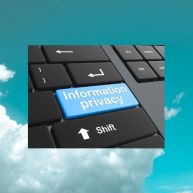Perspectives is an opportunity for Fellows and others to share their ideas in short, accessible essays. IPE/BC Fellows hold a range of views and interests relative to public education.
The Charter for Public Education project: Reflections from a parent on the panel
By Kathy Whittam
My experience as a panel member for the Charter for Public Education was a crash course in how public education works in BC and the many ways in which each community in this province is unique.
It now seems like our Charter journey was a lifetime ago. My stepson was in elementary school at the time. Later, as he was graduating from high school, my daughter began kindergarten. So, my partner and I got to engage with public education all over again. With my daughter now only a few years from finishing high school herself, I can say that public education has been a vastly different experience for each of them. But the big picture perspective I acquired while serving on the Charter panel certainly helped me as I navigated the school years with both.
The Charter experience was profound. I still reflect on all that I learned from the students, teachers, parents, trustees, principals, and community members who participated in the hearings. From a school library in Gibsons, to an auditorium in McBride, to a community hall in Haida Gwaii, to high school classrooms in Fort St John, and many places and spaces in between- each session was highly engaging and deeply meaningful.
and community members who participated in the hearings. From a school library in Gibsons, to an auditorium in McBride, to a community hall in Haida Gwaii, to high school classrooms in Fort St John, and many places and spaces in between- each session was highly engaging and deeply meaningful.
Inevitably, the dialogues began with frustration about budget cuts, and the ways in which those in public education system were struggling as a result. But the discussion quickly turned to the goals of public education, the characteristics of an educated person and community, and what our public education system should be providing to learners of all ages. For me, it was always affirming to hear participants describe the role of education as being much broader than simply preparing students to be workers.
I have heard the Charter, created from these rich discussions, critiqued as “motherhood and apple pie” statements, but I struggle to see the problem with that. What could possibly be wrong with developing a positive vision of the public education system with the learners at the center, supported by a broad commitment by all to work together to help all learners reach their full potential?
How can the Charter be used for discussion and advocacy today? I believe it is still a powerful and effective tool, especially when we think about the pressing issues now facing us. The Charter includes the promise that, as a community, we will “prepare learners for a socially  responsible life in a free and democratic society, to participate in a world which each generation will shape and build.”
responsible life in a free and democratic society, to participate in a world which each generation will shape and build.”
For a truly sustainable future, we urgently need transformative action. It’s very important that all generations be involved in shaping and building a better “normal “than we have ever had before. This is a critical time, in fact, to explore the role of public education in preparing our kids for their part in creating that future.
The promises in the Charter are coupled with the expectation that government “be responsible for fully funding all aspects of a quality education”. What is meant by “fully fund” and “quality education”? Ideally, each community should have a community public school that:
- is lead by a principal who is welcoming, supports the staff team, and partners with the community to build connections and opportunities for students.
- has teachers and support staff who are passionate about helping their students learn and grow.
- has a library in which students can relax, read, and enhance their literacy skills.
- offers music, art, play & physical education to fully develop students intellectual, social, physical, and esthetic capacities.
- supports families who are struggling so every child is nourished and able to learn and have fun.
- is supported by trustees who advocate for the needs of their schools; and,
- is provided with funding to meet those needs, so that staff and parents do not have to keep spending valuable time on fundraising and worrying about what is needed next.

It was clear from the engagement in the hearings that talking about what quality education means to us is time very well spent. This was true then and is still the case today. Equally so, the funding to give every student the support they need is money very well invested. Further, I believe that no single top-down approach can meet the needs of every district or community. Instead, it’s time for us to define the quality and support we’re looking for from the bottom up. Just imagine the potential in community members working together on behalf of the public schools in their district, collaborating to build a needs-based budget, identifying priorities, and defining the ways in which public education is key to the well being of their children and youth and their community overall.
As you can see, the Charter project had a significant impact on me. I feel certain that this was also the case for the many people throughout BC who took the time to engage and share their perspectives. I believe that the powerful process and outcome, the Charter for Public Education, have a great deal of wisdom to offer us today.
Kathy Whittam was a member of panel that conducted hearings in many communities around BC and drafted the Charter for Public Education document and report. She is a parent in Vancouver and has a deep commitment to inclusive, quality public education and progressive community engagement.
 Privacy is not only a key element of freedom, but key to the development of autonomy as a person. Young people need the space to explore and develop, without the pressure of surveillance that will affect them the rest of their lives.
Privacy is not only a key element of freedom, but key to the development of autonomy as a person. Young people need the space to explore and develop, without the pressure of surveillance that will affect them the rest of their lives. protecting privacy and includes provisions that personal data not be held on servers outside of Canada. This is protection against invasive access provided by legislation elsewhere, particularly the U.S., where most data are held—although this protection was waived by Ministerial Order during the pandemic.
protecting privacy and includes provisions that personal data not be held on servers outside of Canada. This is protection against invasive access provided by legislation elsewhere, particularly the U.S., where most data are held—although this protection was waived by Ministerial Order during the pandemic. and expertise that should be available to the education system. The Privacy Commissioner should provide more guidance for the system on complying with the legislation and draw on international expertise available.
and expertise that should be available to the education system. The Privacy Commissioner should provide more guidance for the system on complying with the legislation and draw on international expertise available.